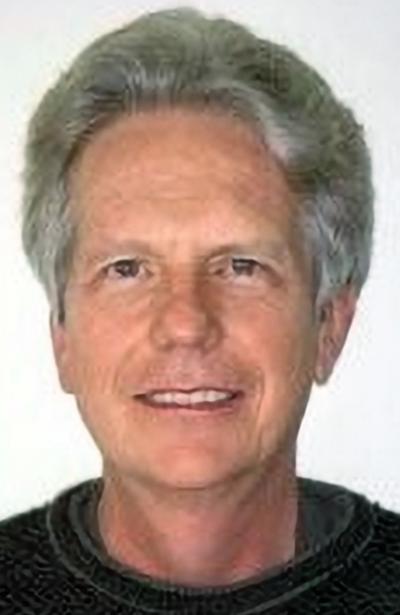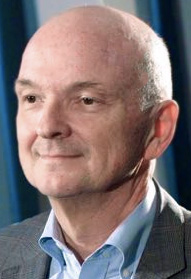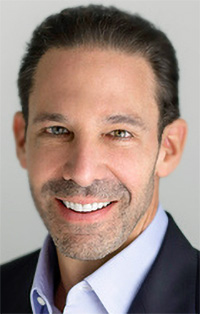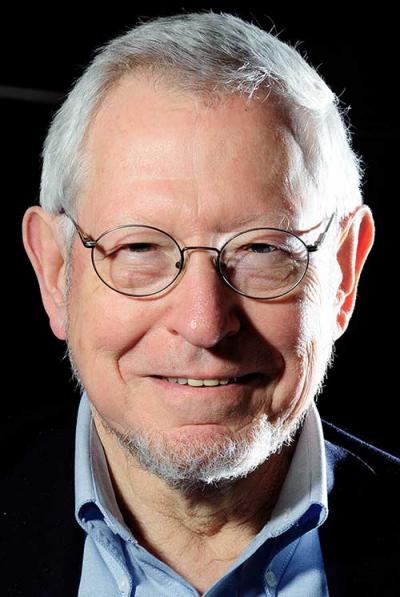

 Ethos Capital has recently announced that it has voluntarily proposed to add an amendment to Public Interest Registry's (PIR) .ORG Registry Agreement with ICANN in the form of a Public Interest Commitment, also known as a "PIC." In the press release Ethos indicated that the PIC would become "legally binding" and "enforceable" both by ICANN and by members of the community. I anticipate that some would ask a number of logical questions: How would that work in practice? more
Ethos Capital has recently announced that it has voluntarily proposed to add an amendment to Public Interest Registry's (PIR) .ORG Registry Agreement with ICANN in the form of a Public Interest Commitment, also known as a "PIC." In the press release Ethos indicated that the PIC would become "legally binding" and "enforceable" both by ICANN and by members of the community. I anticipate that some would ask a number of logical questions: How would that work in practice? more
 There is an ongoing disagreement among various members and groups in the ICANN community regarding automation -- namely, whether and to what extent automation can be used to disclose registrant data in response to legitimate data disclosure requests. A major contributing factor to the complications around automation has been confusion about how to interpret and apply Article 22 of the GDPR. more
There is an ongoing disagreement among various members and groups in the ICANN community regarding automation -- namely, whether and to what extent automation can be used to disclose registrant data in response to legitimate data disclosure requests. A major contributing factor to the complications around automation has been confusion about how to interpret and apply Article 22 of the GDPR. more
 In 1998, I was a lawyer working at Jones Day in Los Angeles, specializing in patent lawsuits. Specifically, I was a member of Jones Day's Technology Issues Practice, which sought to assist companies becoming involved in computer and communications technologies, including the Internet. Meanwhile, in early May the Internet Assigned Numbers Authority (IANA) was preparing to transition its home base from the University of Southern California's Information Sciences Institute (ISI) to a new, independent and not-for-profit organization. more
In 1998, I was a lawyer working at Jones Day in Los Angeles, specializing in patent lawsuits. Specifically, I was a member of Jones Day's Technology Issues Practice, which sought to assist companies becoming involved in computer and communications technologies, including the Internet. Meanwhile, in early May the Internet Assigned Numbers Authority (IANA) was preparing to transition its home base from the University of Southern California's Information Sciences Institute (ISI) to a new, independent and not-for-profit organization. more
 Does the ICANN Board putting its thumb on the scale, change the status quo assumption of a Policy Development Process (PDP)? The primary assumption of most PDPs is that, in the absence of consensus for change, the status quo remains. Otherwise, Policy would be made by fiat by the PDP's Chair or Co-Chairs and there would be a mad rush to occupy those unpaid, thankless positions. more
Does the ICANN Board putting its thumb on the scale, change the status quo assumption of a Policy Development Process (PDP)? The primary assumption of most PDPs is that, in the absence of consensus for change, the status quo remains. Otherwise, Policy would be made by fiat by the PDP's Chair or Co-Chairs and there would be a mad rush to occupy those unpaid, thankless positions. more
 Since last fall, Ethos has actively engaged with ICANN and .ORG communities regarding our proposed acquisition of Public Interest Registry (PIR). Through that process, we demonstrated our desire to ensure that .ORG continues and thrives as an exemplary service for the mission-driven community. ICANN has now declined to consent to the proposed change of control of PIR. more
Since last fall, Ethos has actively engaged with ICANN and .ORG communities regarding our proposed acquisition of Public Interest Registry (PIR). Through that process, we demonstrated our desire to ensure that .ORG continues and thrives as an exemplary service for the mission-driven community. ICANN has now declined to consent to the proposed change of control of PIR. more
 When I began writing about the dot-org sale, it was out of concern for the loss of what I felt strongly was long understood to be a unique place in the Internet's landscape. Like a national park, dot-org deserved special protection. It turns out lots of people and organizations agreed. On April 30th, 2020, The ICANN Board upheld these values. They unanimously withheld consent for a change of control of the Public Interest Registry to a private equity firm. more
When I began writing about the dot-org sale, it was out of concern for the loss of what I felt strongly was long understood to be a unique place in the Internet's landscape. Like a national park, dot-org deserved special protection. It turns out lots of people and organizations agreed. On April 30th, 2020, The ICANN Board upheld these values. They unanimously withheld consent for a change of control of the Public Interest Registry to a private equity firm. more
 In a move, unprecedented in scale, ISOC moved to sell PIR, the registry for .ORG, to a for-profit entity which intends, in turn, to convert PIR into a for-profit entity itself. This move has, understandably, raised concerns from around the Internet community and cast a bright light on ICANN, the nature of its contracts with Registries and the responsibilities of the ICANN Board... As the Vice Chair for Policy of the At-Large Advisory Committee (ALAC), I've tried to navigate a consensus involving ALL of those parties because of our diverse membership. more
In a move, unprecedented in scale, ISOC moved to sell PIR, the registry for .ORG, to a for-profit entity which intends, in turn, to convert PIR into a for-profit entity itself. This move has, understandably, raised concerns from around the Internet community and cast a bright light on ICANN, the nature of its contracts with Registries and the responsibilities of the ICANN Board... As the Vice Chair for Policy of the At-Large Advisory Committee (ALAC), I've tried to navigate a consensus involving ALL of those parties because of our diverse membership. more
 Later this week, ICANN is finally going to vote on the proposed sale of .ORG to Ethos Capital. It will decide the future owner of .ORG, but the decision will also provide a window into whether ICANN will remain independent of the U.S. government. It's a big decision, one that can strengthen both ICANN and the NGO community on the web, if we get it right. For nearly a decade, the ICANN community fought hard to untether itself from the U.S. Department of Commerce. more
Later this week, ICANN is finally going to vote on the proposed sale of .ORG to Ethos Capital. It will decide the future owner of .ORG, but the decision will also provide a window into whether ICANN will remain independent of the U.S. government. It's a big decision, one that can strengthen both ICANN and the NGO community on the web, if we get it right. For nearly a decade, the ICANN community fought hard to untether itself from the U.S. Department of Commerce. more
 This week, the ICANN Board will vote on whether to approve the transfer of control of the .ORG domain to a private equity firm called Ethos Capital. This is a weighty decision for ICANN, since in order to approve the sale, it will have to convince itself that this is the right choice in the face of tremendous and widespread opposition, including from those who will be most affected by the sale. more
This week, the ICANN Board will vote on whether to approve the transfer of control of the .ORG domain to a private equity firm called Ethos Capital. This is a weighty decision for ICANN, since in order to approve the sale, it will have to convince itself that this is the right choice in the face of tremendous and widespread opposition, including from those who will be most affected by the sale. more
 For all the many reasons raised by thousands of petitioners by prominent members of the U.S. Congress, and the California Attorney General's office, this "sale" plainly should not be occurring. However, in a very real way, it is déjà vu. For me, as one of the handful of people who were members of the original InterNIC public advisory committee which oversaw the spinout of the registry activity from its DARPA government instantiation to a private enterprise business... more
For all the many reasons raised by thousands of petitioners by prominent members of the U.S. Congress, and the California Attorney General's office, this "sale" plainly should not be occurring. However, in a very real way, it is déjà vu. For me, as one of the handful of people who were members of the original InterNIC public advisory committee which oversaw the spinout of the registry activity from its DARPA government instantiation to a private enterprise business... more
 As widely reported, and not surprising, the internet is swimming in COVID-19 online scams. Criminals, accustomed to rapidly grabbing online territory during times of crisis and profiting from public fear, are working overtime in the face of the coronavirus. Unfortunately, ICANN's failure to enforce its minimal WHOIS and DNS abuse requirements has resulted in delayed mitigation efforts at a time when swift responses are needed to protect the public from COVID-19 scams. more
As widely reported, and not surprising, the internet is swimming in COVID-19 online scams. Criminals, accustomed to rapidly grabbing online territory during times of crisis and profiting from public fear, are working overtime in the face of the coronavirus. Unfortunately, ICANN's failure to enforce its minimal WHOIS and DNS abuse requirements has resulted in delayed mitigation efforts at a time when swift responses are needed to protect the public from COVID-19 scams. more
 ICANN's dismissal of public comments submitted on the .COM Registry Amendment wasn't surprising given that it recently dismissed the public comments on the .Org Renewal Agreement, but the speed and disdain which it demonstrated was. Despite public pronouncements by ICANN President and CEO, Gören Marby and assurances from ICANN Board Chair, Maarten Botterman, that public comments were welcomed and that ICANN would take them seriously... more
ICANN's dismissal of public comments submitted on the .COM Registry Amendment wasn't surprising given that it recently dismissed the public comments on the .Org Renewal Agreement, but the speed and disdain which it demonstrated was. Despite public pronouncements by ICANN President and CEO, Gören Marby and assurances from ICANN Board Chair, Maarten Botterman, that public comments were welcomed and that ICANN would take them seriously... more
 The voluntary Public Interest Commitments (PIC) have a long and sad history at ICANN. They were a process never created or evaluated by the Multistakeholder process, thrown together for one purpose and allowed to morph into a mechanism for an almost unlimited number of un-reviewed other purposes. Disputes are delegated to a resolution process which itself was never evaluated for... more
The voluntary Public Interest Commitments (PIC) have a long and sad history at ICANN. They were a process never created or evaluated by the Multistakeholder process, thrown together for one purpose and allowed to morph into a mechanism for an almost unlimited number of un-reviewed other purposes. Disputes are delegated to a resolution process which itself was never evaluated for... more
 As we reported in our Post-GDPR Compliance Rate retrospective in January 2020, registrar compliance rates in response to verified requests for redacted registrant information using the Appdetex WHOIS Requestor System was 25 percent. Our most recent report shows the compliance rate has increased to 27 percent, based upon a total of 243 requests for redacted WHOIS information sent to 68 registrars over the period starting January 1, 2020, through February 24, 2020. more
As we reported in our Post-GDPR Compliance Rate retrospective in January 2020, registrar compliance rates in response to verified requests for redacted registrant information using the Appdetex WHOIS Requestor System was 25 percent. Our most recent report shows the compliance rate has increased to 27 percent, based upon a total of 243 requests for redacted WHOIS information sent to 68 registrars over the period starting January 1, 2020, through February 24, 2020. more
 Within the next year, the ICANN Board may well face a decision that will help determine whether ICANN is capable of serving the global public interest or whether it is degenerating into an industry-controlled self-regulatory association. The issue can be framed quite simply: will ICANN approve a process for the creation of a new wave of new generic top level domains that will include "closed generic" gTLDs? more
Within the next year, the ICANN Board may well face a decision that will help determine whether ICANN is capable of serving the global public interest or whether it is degenerating into an industry-controlled self-regulatory association. The issue can be framed quite simply: will ICANN approve a process for the creation of a new wave of new generic top level domains that will include "closed generic" gTLDs? more